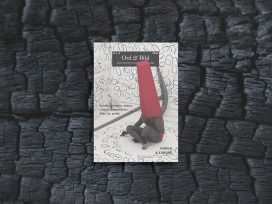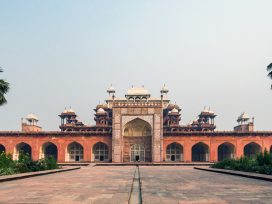In the field of translation studies, Turkey presents a very unique and specific case. Turkish modernity itself is a process of translation, as it cannot be considered apart from the will to Westernization. During the late Ottoman Empire as the “revitalization” of the state appeared as a necessity that could not be postponed, the only prerequisite seemed to be the transplantation of the Western institutions. Although it commenced as a “neutral” intervention, this model soon took a distinctive turn and became severely ideological in itself, as the transplantation did not comprise merely technology, but the general view of the world underlining it. The notion of materialism has been an outcome of this move and during the period between 1876-1908 Turkey has developed one of its most spectacular and much speculated about institutions: The Translation Office (TTL).
It is a strongly held belief that the TTL is the cradle of both the Turkish intelligentsia and Turkish modernity as the latter represents the teleological will of the former. Besides, the Turkish model of modernity has always been under the absolute influence of positivism, which is dominant amongst the avant-garde intellectuals. This should be taken as the natural support of the translation process.
Evidently, the crux of this model and process is the proclamation of the Turkish Republic. As soon as it was founded, the Republic turned to the intellectuals and in that regard not only assumed Westernization as its main target but believed that the accomplishment of this goal relied on the process of education. As one of the primary steps of this development during the 1930s, influenced by the fascist theories from contemporary Europe, two very important events took place on the cultural level. One was the establishment of Classical Studies departments amongst Hititology and Sumerology departments in the University of Ankara and Istanbul – to an important extent with the assistance of Jewish-German scholars who escaped the Nazi regime. The other was the opening of a classical gymnasium with special emphasis on Greek and Latin teaching in the capital city of Ankara, as a consequence of the esteem placed on ancient Greek and Roman civilization – considered to be one of the foundations of Western civilization.
In the 1940s, this approach was taken one step further. Once again in Ankara, as a branch of the Ministry of National Education, the Translation Office was instituted, where most of the prominent intellectuals of the time were employed to contribute to the grand task of translating Western classics into Turkish. As part of this project, which was to be abandoned a few years later, hundreds of translations have been made and published under the imprint of the Turkish Ministry Of Education. This has been a unique mission yet to be surpassed in the cultural history of the Turkish Republic. The purpose was definitely to create a “new citizen”.
Even though the venture has a long history that can be traced back to the 19 century, the republican mission has been even more radical in this regard. One particular circumstance that should be remembered is that the heart of the project was contingent on the fact that everything had been shaped and formulated under the strong will of a leading elite in the climate created by an authoritarian single party regime.
As Turkey moved to a new political stage, and opened the possibility of a relatively democratic multi-party regime, the emphasis put on this “missionary” approach started to fade away. The axis of political will shifted to the peripheral forces rather than the central one, and the populist approaches and the compromises made to oblige the masses disregarded what we could term as the “mission of translation”.
It is rather difficult at present to argue for the functioning, both practically and ideologically, of such a project for several reasons: Firstly, the primarily Eurocentric approach that would underline such a project cannot be either endorsed or proposed anymore. Secondly, the notion of a Western Canon, after many analyses and heated debates, now has reached a point that should be considered carefully.
These two constraints have an effect on the concept of Comparative Literature as well, pushing it to a new position where a multi-culturalist, pluralist methodology and epistemology is favored. The new period of multiculturalism not only points toward new fields of research and study such as the subaltern, minorities, feminist and likewise studies, but also gives a new content and shape to the notion of humanism.
Humanism, long underrated, is now going through a period of revival. As Emily Apter observes in one of her recent articles, such important figures as the late Edward Said who has contributed to the new phase of comparative literature studies has in the final analysis taken a position that would not challenge nor neglect the importance of humanism. On the other hand, a larger understanding of humanism is always present at the basis of all possible approaches to the subaltern; oppressed or repressed. The only condition is that humanism in this regard gains new substance. Not anymore in the mid 19 century romanticist version of humanism, based on the notion of the great ancient Greece and Rome but more secular and worldly, to use Said’s key concepts.
The late 20 century ended with the strong will to create a new understanding of humanity. The tragic collapse of the authoritarian regimes, which in a certain perspective cannot be condemned for their goodwill in constructing a new world based on equality and scientific knowledge, did not achieve to bestow happiness on mankind, due to their emphasis on the future rather than the present-day reality. Generations were sacrificed to improve the lot of future ones. Further, the pursuit of homogenization also impeded the access of societies to the wealth of plurality and the plethora of differences.
The new propositions are committed to the encouragement of heterogeneity and pluralism. Technological developments have provided important support for the accomplishment of these goals. The new concepts that were developed by the end of the 20 century were primarily an outcome of a very specific condition that could be epitomized as a challenge posed by geography to history. In this regard, the late 20 century witnessed the emergence of such phenomena as fragmentation, transition, and border-crossing. All of these concepts are strictly interrelated with the importance attributed in this period to such issues as memory, identity, body, gender, and sexuality.
It might be argued that all these fledgling concepts are part and parcel of a new understanding of translation. This, however, is neither a translation from one language to the other in the narrow sense of the word, nor the translation of one text into another, but eventually it is the translation of those concepts as human understanding, tolerance, altruism. In other words, what is embodied in translation has once again surfaced, but in a more complicated and even in a more essential way. Translation has always been a condition pertaining to humanism; now the point is that the human being is translated with all the necessary intellectual elements.
Leo Spitzer, who spent part of his life in Istanbul and founded the Roman Studies center at the University of Istanbul, was a humanist after all. This very significant characteristic of Spitzer is revealed in a paradox that he has continuously exhibited. Spitzer on the one hand professed to the “comparative”power of literature but on the other hand supported the idea that a language cannot be translated into another one. This idea definitely was a consequence of Spitzer’s respect and love for the abstract notion of language. There should be no objection to Spitzer’s sensitivity. And yet, it is now time to argue that the only remedy for the existing problems of humanity is translation. This is what we can term translation at large.






